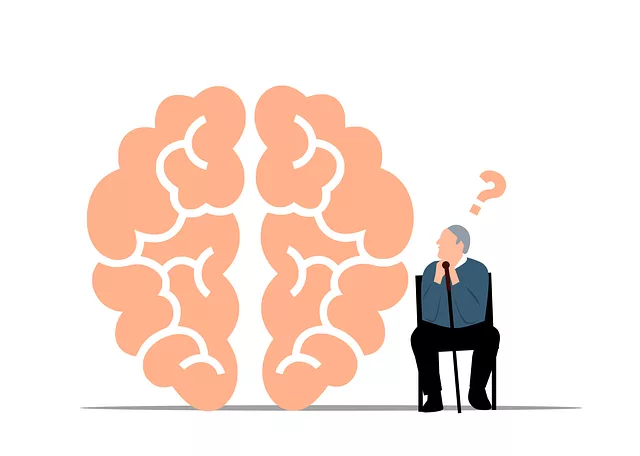Depression Prevention: Strategies from Kaiser Permanente Mental Health Center, Lone Tree
Depression, a global concern affecting millions, is characterized by sadness, hopelessness, and phys…….
In the realm of healthcare, particularly mental health services, evaluating and enhancing treatment centers is paramount to ensuring quality care. This article delves into the intricacies of “Kaiser Permanente Mental Health Center Reviews Lone Tree,” a topic that has garnered significant attention due to its potential impact on improving access to and the effectiveness of mental health treatments in the region. By exploring various facets, from its definition and global reach to technological innovations and policy frameworks, we aim to provide an all-encompassing perspective on this vital subject.
Definition:
Kaiser Permanente (KP), a renowned healthcare organization, operates mental health centers across the United States, including in Lone Tree, Colorado. The “reviews” aspect refers to the feedback, assessments, and evaluations generated by patients, their families, and healthcare professionals regarding the quality, efficacy, and patient-centeredness of these mental health services. These reviews play a critical role in shaping public perception, guiding improvements, and ensuring accountability.
Core Components:
Historical Context:
KP’s presence in Lone Tree is part of its larger mission to provide affordable, high-quality healthcare to communities across the nation. The organization has been at the forefront of integrating mental health services into primary care settings, ensuring that mental well-being receives equal importance alongside physical health. Over time, KP’s mental health centers have evolved to incorporate innovative therapies, technologies, and patient-centric approaches, shaping the landscape of mental healthcare.
International Influence:
The concept of comprehensive mental health care, as promoted by KP, has resonated globally, inspiring similar initiatives in various countries. Many international organizations, including the World Health Organization (WHO), advocate for integrating mental health services into primary care systems, aligning with KP’s model. This approach is gaining traction worldwide, especially in regions where mental healthcare infrastructure was previously limited.
Trends Shaping the Trajectory:
Regional Variations:
In North America, there is a strong emphasis on expanding access to mental health services, with governments and private organizations investing in community-based initiatives. Europe, too, has witnessed increased investment in mental healthcare infrastructure, leading to more accessible and diverse treatment options. In contrast, developing regions often face challenges related to funding, infrastructure, and cultural barriers, impacting the availability and quality of mental health care.
Market Dynamics:
The mental health services market is experiencing growth due to rising awareness, changing attitudes towards mental illness, and increased demand for accessible, affordable care. KP’s involvement in this market contributes to its competitive landscape, driving innovation and efficiency.
Investment Patterns:
Economic Impact of Kaiser Permanente:
As a large healthcare provider, KP’s operations have a substantial economic impact on the communities it serves. The organization generates employment, contributes to local tax revenues, and stimulates the economy through purchases from vendors and service providers. Furthermore, by improving mental health outcomes, KP potentially reduces societal costs associated with untreated mental illnesses, such as lost productivity and increased utilization of emergency services.
Digital Platforms:
Data Analytics:
Advanced analytics and machine learning algorithms are being utilized to analyze large datasets, identify trends, and personalize treatments. These technologies can predict relapse risks, suggest tailored interventions, and optimize resource allocation.
Impact and Future Potential:
Technological innovations have the potential to:
Key Policies and Regulations:
Influence on Development:
Policies and regulations significantly shape the development and operation of mental health centers like KP Lone Tree:
Main Challenges:
Criticisms and Proposed Solutions:
Case Study 1: Telehealth Expansion in Rural Communities
KP successfully launched a regional telehealth initiative in Colorado’s rural San Luis Valley, addressing the limited access to mental health services in the area. The program provided online therapy sessions, peer support groups, and educational workshops via video conferencing. Results showed increased engagement, reduced travel burdens for patients, and improved access to specialized care. This case demonstrates the potential of digital technologies to bridge the gap in mental healthcare access.
Key Takeaways:
Case Study 2: Integrating Peer Support in Outpatient Programs
KP’s Lone Tree center implemented a peer support program, hiring and training individuals with lived experience in mental health recovery to assist patients. This initiative aimed to foster a supportive environment and improve treatment outcomes. The program was well-received, with patient surveys indicating increased satisfaction and a sense of community. Peer supporters played a vital role in motivating participants and providing navigation services within the healthcare system.
Lessons Learned:
Emerging Trends:
Strategic Considerations for Kaiser Permanente:
“Kaiser Permanente Mental Health Center Reviews Lone Tree” encompasses a multifaceted discussion, highlighting the significance of comprehensive mental healthcare, technological advancements, policy frameworks, and patient experiences. By navigating challenges and embracing emerging trends, KP can continue to enhance its services, improve access, and positively impact the well-being of individuals in Lone Tree and beyond. This article has provided valuable insights into this dynamic field, underscoring the importance of ongoing evaluation and innovation in mental healthcare.
Q: How does Kaiser Permanente ensure the privacy of patient records?
A: KP adheres to strict policies and legal frameworks, including HIPAA, to protect patient data. Encryption, secure storage, and access controls are implemented to safeguard information.
Q: Are online therapy sessions as effective as in-person therapy?
A: Research suggests that online therapy can be highly effective for various mental health conditions when delivered by qualified professionals using appropriate platforms and techniques. However, in-person therapy may offer added benefits for certain individuals.
Q: What if I’m concerned about the cost of mental health services at Kaiser Permanente?
A: KP offers a range of coverage options to accommodate different insurance plans and financial situations. They also provide sliding fee scales based on income for eligible patients.
Q: How can I get involved in improving mental healthcare in my community?
A: You can contribute by advocating for increased access to mental health services, supporting local initiatives, participating in awareness campaigns, and encouraging open conversations about mental wellness.

Depression, a global concern affecting millions, is characterized by sadness, hopelessness, and phys…….

Stress management is vital for both mental and physical health, with individual perceptions influenc…….

The Kaiser Permanente mental health center in Lone Tree offers comprehensive Social Skills Training,…….

Before launching a mental wellness podcast series, conduct thorough research focusing on target audi…….